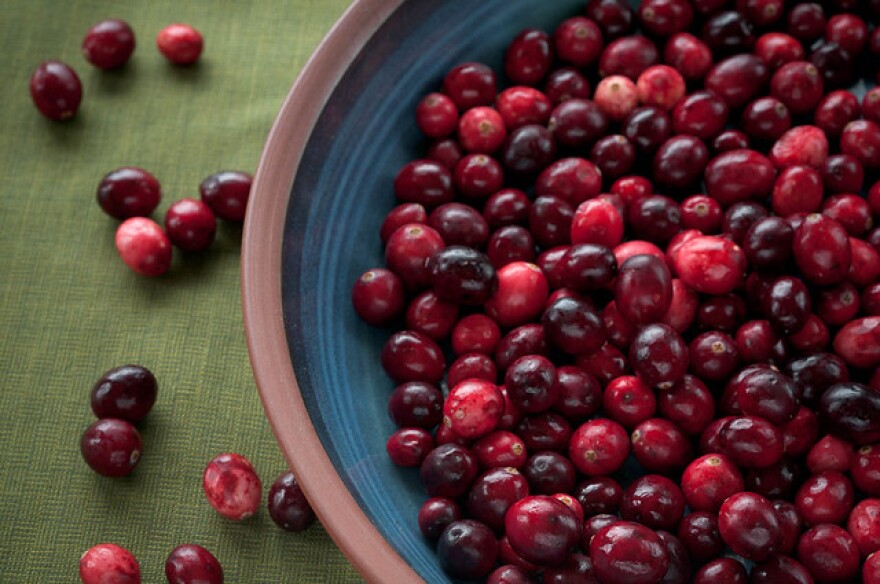If you've ever had a urinary tract infection, somebody has probably told you to drink cranberry juice. The idea that cranberries have infection-fighting powers has been around a long time. Now, there's research to support it.
Scientists at McGill University have found that cranberry extracts make E. coli and bacteria responsible for urinary tract infections and pneumonia more susceptible to antibiotics.
It’s a two-step effect. First, the cranberry molecules make the bacterial cells more permeable, so more of the antibiotic gets in. Then, they block the cells’ ability to pump the antibiotic back out.
“Now the antibiotic is trapped inside the bacteria, and because it's trapped inside, the concentration of antibiotic is high enough that we don't need to give as high a dose,” explained Nathalie Tufenkji, a professor of chemical engineering at McGill and the senior author on the new study.
The molecules involved are known as proanthocyanidins, and Tufenkji says they have other infection-fighting abilities. Her previous research has shown that they can prevent bacterial cells from sticking to the inside of the bladder, so they get flushed out before they can start an infection. The same molecules also interfere with the ability of bacteria to communicate with one another, which is key for infections.
Perhaps most importantly, the cranberry molecules appear to prevent bacteria from developing resistance to antibiotics.
“We were very, very, excited when we saw that when we combine these cranberry molecules with antibiotics, the bacteria didn't develop resistance to the antibiotic,” Tufenkji said. “We think this holds great promise in terms of slowing the spread of antibiotic resistance.”
And, it’s not just cranberries. Tufenkji has found that components of maple syrup can also both boost antibiotic effectiveness and prevent antibiotic resistance, although through different mechanisms than the cranberry molecules.
“That's a really interesting part of the of the research,” Tufenkji explained. “They're not actually killing the bacteria, so they don't necessarily make the bacteria develop resistance.”
And that means that cranberries and maple could be important weapons in the fight against antibiotic resistant infections – a growing problem which the Centers for Disease Control and the World Health Organization say is one of the greatest public health challenges of our time. One recent report concluded that more people are expected to die from antibiotic resistant infections than cancer in 2050.
Tufenkji says they aren’t ready to recommend cranberry juice or extracts as a medical treatment yet. They have only tested the effectiveness in insects, and wouldn’t have any idea what dose might work for humans. But it’s an exciting discovery, and Tufenkji says they will continue to test the cranberry extracts in other animals.




